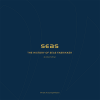Child Murder and British Culture, 1720–1900
In this wide-ranging study, Josephine McDonagh examines the idea of child murder in British culture in the eighteenth and nineteenth centuries. Analysing texts drawn from economics, philosophy, law, medicine as well as from literature, McDonagh highlights the manifold ways in which child murder echoes and reverberates in a variety of cultural debates and social practices. She places literary works within social, political and cultural contexts, including debates on luxury, penal reform campaigns, slavery, the treatment of the poor, and birth control. She traces a trajectory from Swift’s A Modest Proposal through to the debates on the New Woman at the turn of the twentieth century by way of Burke, Wordsworth, Wollstonecraft, George Eliot, George Egerton, and Thomas Hardy, among others. McDonagh demonstrates the haunting persistence of the notion of child murder within British culture in a volume that will be of interest to cultural and literary scholars alike.
• Examines the contentious and topical theme of child murder • Covers a broad range of writers, from Swift to Hardy, via Burke, Wollstonecraft and George Eliot • Lucid and accessibly written
ContentsList of illustrations; Acknowledgements; Note on references; List of abbreviations; Introduction: plots and protagonists; 1. Child murder and commercial society in the early eighteenth century; 2. ‘A squeeze in the neck for bastards’: the uncivilised spectacle of child-killing in the 1770s and 1780s; 3. 1789/1803: Martha Ray, the mob, and Malthus’s Mistress of the Feast; 4. ‘Bright and countless everywhere’: the New Poor Law and the politics of prolific reproduction in 1839; 5. ‘A nation of infanticides’: child murder and the national forgetting in Adam Bede; 6. Wragg’s daughters: child murder towards the fin de siècle; 7. English babies and Irish changelings; Appendix: on the identity of ‘Marcus’; Notes; Bibliography; Index.
Reviews\'… in-depth study.\' Times Higher Education Supplement
\'There is much here for the literary scholar and the historian, as the book situates an emotive theme within a wide-ranging cultural framework.\' BARS Bulletin
Nøkkelord: Historie Kulturhistorie
- Forlag: Cambridge University Press
- Utgivelsesår: 2003
- Kategori: Historie
- Lagerstatus: Ikke på lagerVarsle meg når denne kommer på lager
- Antall sider: 292
- ISBN: 9780521781930
- Innbinding: Innbundet











